Guide to Using VPNs for Online Security: A Clear Roadmap
Category: Cybersecurity
Unlock Your Online Safety with VPNs
Navigating the world of online security can feel overwhelming, especially when cyber threats seem to multiply daily. Whether you’re an individual concerned about protecting your personal information or a small business owner looking to shield sensitive company data, understanding how to use a VPN effectively is a vital step. You’ve likely arrived here searching for a straightforward, practical guide on how VPNs work and how they can help secure your digital presence.
This post is crafted with your needs in mind—cutting through technical jargon to deliver clear, actionable insights. We’ll explore not just what VPNs are, but how to choose one, set it up correctly, and maximize its protective benefits without compromising speed or usability. Unlike generic articles, this guide focuses on real-world application tailored to your everyday cybersecurity challenges, bridging the gap between theory and practical defense.
Keep reading to turn your VPN from a mysterious tool into a trusted part of your online safety strategy—empowering you to browse, communicate, and work with confidence in an increasingly risky digital environment.
- Unlock Your Online Safety with VPNs
- What Is a VPN? Understanding the Basics and How It Enhances Online Security
- How VPNs Protect Your Data: Encryption and Anonymity Explained
- Choosing the Right VPN: Key Features to Consider for Individuals and Small Businesses
- Step-by-Step Setup Guide: Installing and Configuring Your VPN for Maximum Security
- Best Practices for Using VPNs: When and How to Activate Your VPN for Optimal Protection
- Common VPN Myths and Misconceptions Debunked
- Limitations of VPNs: What They Can’t Protect Against and Additional Security Measures to Take
- VPNs and Legal Considerations: Understanding Policies and Compliance Issues
- Troubleshooting VPN Issues: Common Problems and How to Fix Them
- Integrating VPNs into a Broader Online Security Strategy for Sustainable Cyber Protection
What Is a VPN? Understanding the Basics and How It Enhances Online Security
A Virtual Private Network (VPN) is a powerful cybersecurity tool designed to protect your online activity by creating a secure, encrypted tunnel between your device and the internet. When you connect to a VPN, your internet traffic is routed through a remote server, masking your real IP address and making it nearly impossible for hackers, advertisers, or even your internet service provider to monitor or intercept your data. This basic function alone significantly strengthens your online privacy and security.
Beyond just hiding your IP address, a VPN encrypts all data exchanged over your network. This means sensitive information such as passwords, credit card numbers, and personal messages are shielded from potential cyber threats like man-in-the-middle attacks or unsecured public Wi-Fi vulnerabilities. By using a VPN, you can safely browse websites, access private networks remotely, and prevent unauthorized tracking—making it an essential defense mechanism in today’s environment where data breaches and identity theft are increasingly common. In short, a VPN acts as your personal firewall and privacy guard, ensuring your digital footprint stays confidential and your connection remains private at all times.
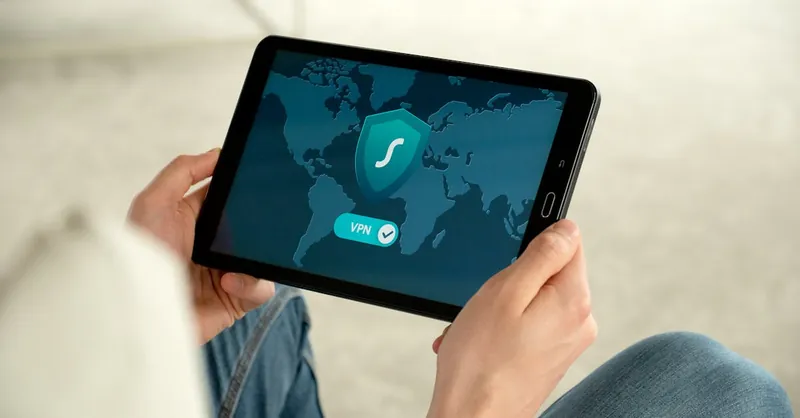
Image courtesy of Dan Nelson
How VPNs Protect Your Data: Encryption and Anonymity Explained
At the core of every reliable VPN service lies encryption, the process that encodes your internet traffic and renders it unreadable to anyone who might intercept it. When you connect to a VPN, your data is encrypted using strong cryptographic protocols such as AES-256—the same standard adopted by governments and cybersecurity experts worldwide. This ensures that even if a hacker, internet service provider, or malicious actor manages to capture your data packets, they won’t be able to decipher the information without the corresponding decryption key.
Encryption not only safeguards your sensitive details like passwords, financial information, and personal communications but also protects you when using unsecured networks, such as public Wi-Fi at cafes or airports—common hotspots for cyberattacks like man-in-the-middle (MITM) scams. By encrypting your connection end-to-end, VPNs create a secure channel that thwarts eavesdropping and data theft.
Equally important is the role VPNs play in providing online anonymity. When connected, your real IP address is masked and replaced with the IP address of the VPN server you choose. This process hides your geographic location and browsing habits from websites, advertisers, and trackers, preventing targeted ads, location-based restrictions, and invasive surveillance. In addition, VPN anonymity helps circumvent censorship and enables you to access a freer, more open internet from anywhere in the world.
Together, encryption and anonymity form a powerful duo that not only protects your data from unauthorized access but also preserves your identity and online freedom. This is why VPNs are considered one of the most effective tools for enhancing your cybersecurity posture and maintaining privacy in today’s highly interconnected digital landscape.
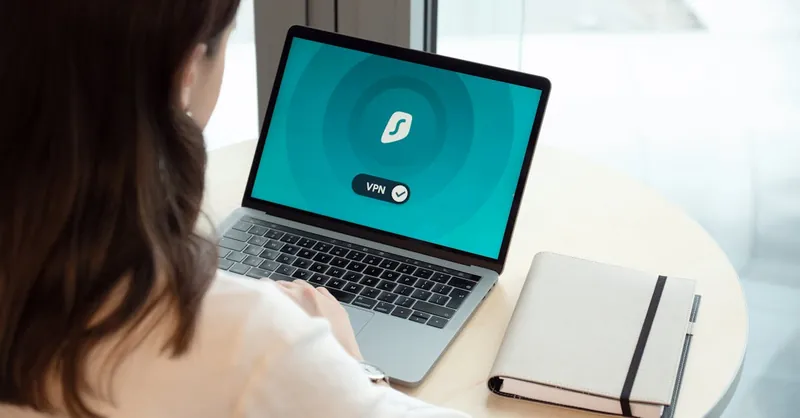
Image courtesy of Dan Nelson
Choosing the Right VPN: Key Features to Consider for Individuals and Small Businesses
Selecting the best VPN service can be challenging given the vast array of options available today. Whether you’re an individual seeking robust privacy or a small business aiming to protect sensitive client data, it’s essential to focus on key VPN features that align with your specific needs. Picking a VPN with the right capabilities not only ensures effective online security but also enhances user experience and long-term reliability.
Must-Have Security Features
- Strong Encryption Protocols: Look for VPNs that use industry-standard encryption like AES-256 and support secure tunneling protocols such as OpenVPN, WireGuard, or IKEv2. These ensure your data remains confidential and resistant to cyberattacks.
- No-Logs Policy: A strict no-logs policy guarantees that the VPN provider does not store details about your online activity, minimizing the risk of data exposure in case of breaches or legal inquiries.
- Kill Switch: This feature automatically cuts off your internet connection if the VPN connection drops unexpectedly, preventing your real IP address and activities from being exposed.
- DNS Leak Protection: Ensures that DNS requests are routed through the encrypted VPN channel, preventing your ISP or third parties from tracing the websites you visit.
Usability and Performance Factors
- Server Network and Locations: A large, diverse server network provides better speed, reliability, and flexibility to access geo-restricted content worldwide. For small businesses, servers near their physical location can reduce latency and improve connection stability.
- Simultaneous Connections: Check how many devices you can connect under one account. For families or small teams, VPNs allowing multiple simultaneous connections maximize protection across phones, laptops, and tablets.
- Speed and Bandwidth: High-speed servers and unlimited bandwidth are critical to maintain productivity, especially when handling video calls, file transfers, or streaming protected content.
- User-Friendly Apps: Intuitive VPN apps compatible with all your devices make setup and daily use hassle-free, a crucial point for those who are not cybersecurity experts.
Additional Business-Friendly Features
For small businesses, consider VPN providers offering:
- Dedicated IP Addresses: Provide consistent access and reduce the risk of blacklisting caused by shared IP use.
- Advanced Security Controls: Features like multi-factor authentication (MFA) and centralized management tools improve control over employee access and data protection.
- Reliable Customer Support: Responsive support teams are vital to quickly resolve technical issues and maintain seamless operation.
By focusing on these critical features, you can select a VPN that not only fortifies your online security but also fits your lifestyle and operational demands, whether you're safeguarding personal data or backing your business’s cybersecurity defenses.
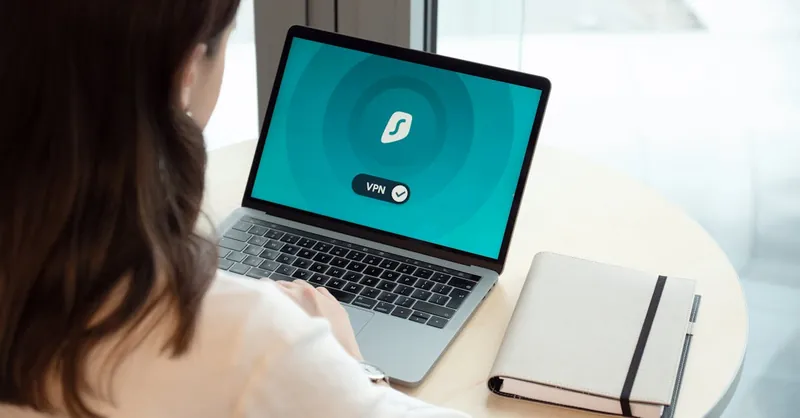
Image courtesy of Dan Nelson
Step-by-Step Setup Guide: Installing and Configuring Your VPN for Maximum Security
Setting up your VPN correctly is crucial to unlocking its full potential in protecting your online security and privacy. Follow these clear, step-by-step instructions to install and configure your VPN for maximum security while ensuring seamless and fast internet connectivity.
1. Choose and Download a Trusted VPN Client
Begin by selecting a reputable VPN provider based on the key features discussed earlier, such as strong encryption, a no-logs policy, and a kill switch. Once subscribed, download the official VPN app compatible with your device’s operating system (Windows, macOS, iOS, Android, etc.) directly from the provider’s website or an authorized app store to avoid fake or malicious versions.
2. Install and Launch the VPN Application
Run the installer file or follow your device’s app installation process to set up the VPN client. After installation, open the app and log in using your VPN account credentials. Make sure to enable any automatic update settings to keep the VPN software current with the latest security patches.
3. Configure Security Settings for Optimal Protection
Before connecting, customize the VPN settings by:
- Enabling the Kill Switch: This critical feature stops all internet traffic if your VPN connection drops, preventing accidental exposure of your real IP address.
- Activating DNS Leak Protection: Ensure DNS requests are routed exclusively through the VPN tunnel, protecting against DNS leaks that can reveal your browsing history.
- Selecting the Strongest Encryption Protocol: Choose secure tunneling protocols like WireGuard or OpenVPN for the best balance of security and speed.
- Setting Startup Behavior: Configure the app to launch automatically on system start and connect to the VPN to maintain continuous protection.
4. Connect to the Most Suitable VPN Server
For enhanced speed and stability, select a VPN server geographically close to your location or relevant to your usage needs. For accessing region-specific content, pick a server located in the target country. Many VPN apps offer server recommendations based on your current network conditions and usage patterns.
5. Test and Verify Your VPN Connection
Once connected, verify your VPN is working properly by checking:
- IP Address Masking: Use online tools like “what is my IP” to confirm your IP address is replaced by the VPN server’s address.
- Leak Protection: Employ DNS and WebRTC leak test websites to ensure no data escapes outside the encrypted tunnel.
- Connection Speed: Run a speed test to gauge the performance impact of your VPN connection and try different servers if needed.
By meticulously installing and configuring your VPN with these steps, you reinforce your cybersecurity defenses and enjoy a private, encrypted online experience with minimal disruptions. Regularly review and update your VPN settings to adapt to evolving threats and maintain peak security at all times.
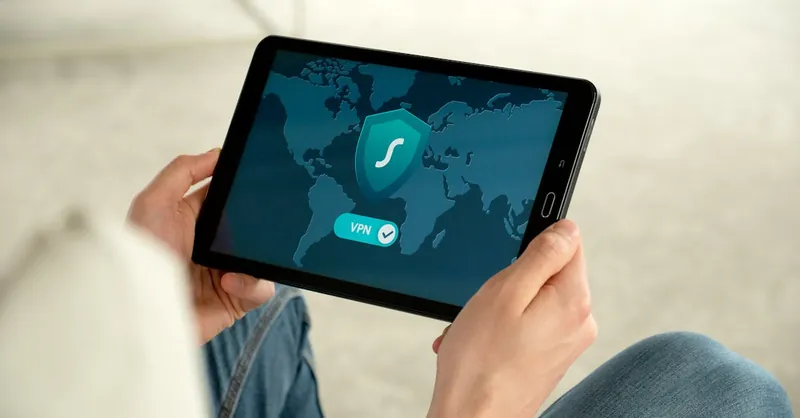
Image courtesy of Dan Nelson
Best Practices for Using VPNs: When and How to Activate Your VPN for Optimal Protection
To harness the full security benefits of a VPN, it’s essential to activate your VPN strategically and consistently depending on your online activities and threat exposure. While VPNs provide robust encryption and anonymity, using them correctly enhances protection without unnecessary performance slowdowns or connectivity issues.
When to Turn On Your VPN
-
Always Use VPN on Public Wi-Fi: Public networks like those in cafes, airports, and hotels are prime targets for cybercriminals conducting man-in-the-middle attacks or snooping on unencrypted traffic. Activating your VPN when connected to any public Wi-Fi is one of the most crucial steps to safeguard your sensitive data.
-
Enable VPN for Remote Work and Accessing Company Networks: If you handle business communications or access proprietary data remotely, always connect via VPN to ensure end-to-end encryption and prevent unauthorized interception.
-
Use VPN When Accessing Geo-Restricted or Censored Content: VPNs allow you to connect to servers in different regions, bypassing geographic limitations and enabling secure access to information or streaming services otherwise blocked in your location.
-
Activate VPN During Sensitive Transactions: Whether shopping online, banking, or handling confidential communications, switching on your VPN adds an extra layer of security to protect your data from hackers and eavesdroppers.
How to Use Your VPN for Maximum Security and Convenience
-
Set Your VPN to Connect Automatically: Most VPN apps offer an auto-connect feature that launches the VPN as soon as your device accesses the internet or connects to an unsecured network. Enabling this reduces the risk of forgetting to activate your VPN at critical times.
-
Choose the Appropriate Server Location: For daily browsing, select servers close to your physical location to maximize speed. When privacy or bypassing restrictions is a priority, pick a server in a country aligned with your access goals.
-
Regularly Update Your VPN Software: Keep your VPN client up to date to benefit from the latest security patches, new features, and performance improvements.
-
Combine VPN Use with Other Security Tools: While VPNs protect your connection, layering your defense with antivirus software, firewalls, and secure password practices creates a comprehensive cybersecurity stance.
By following these best practices for when and how to activate your VPN, you ensure that your online activities remain private, your data encrypted, and your identity shielded from ever-evolving cyber threats. Using your VPN proactively and intelligently turns a powerful tool into an essential fortress for digital security.
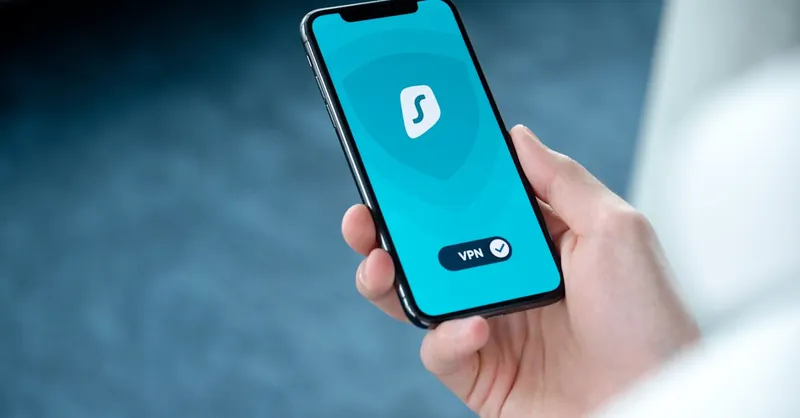
Image courtesy of Dan Nelson
Common VPN Myths and Misconceptions Debunked
Despite the growing popularity of VPNs as essential tools for online security and privacy, many misconceptions still surround their use. Clearing up these common VPN myths is crucial for making informed decisions and maximizing the effectiveness of your VPN service.
Myth 1: VPNs Make You Completely Anonymous Online
While VPNs significantly enhance privacy by hiding your IP address and encrypting traffic, they do not make you 100% anonymous or untraceable. Activities such as logging into social media accounts, using identifiable services, or browsing sites that track user behavior can still reveal your identity. VPNs are a critical piece of the privacy puzzle but should be combined with privacy-conscious habits for the best protection.
Myth 2: VPNs Slow Down Internet Speeds Drastically
It is true that encrypting data and routing traffic through remote servers can impact connection speed, but modern VPNs with optimized networks and protocols like WireGuard or OpenVPN usually provide minimal speed loss. Choosing a VPN with a large server network near your location and ensuring better infrastructure reduces latency and bandwidth throttling, preserving a smooth online experience.
Myth 3: Free VPNs Are Just As Secure As Paid Services
Free VPN providers often have limitations such as data caps, slower speeds, and questionable privacy policies. Many free VPNs collect and sell user data, undermine anonymity, or lack essential security features like a kill switch and DNS leak protection. Investing in a reputable, paid VPN service guarantees stronger encryption, no-logs policies, and reliable customer support for consistent security.
Myth 4: VPNs Only Protect You on Public Wi-Fi
While VPNs are critical for securing data on unsecured public networks, their benefits extend far beyond. They safeguard your online activity from ISP tracking, government surveillance, intrusive advertisers, and cybercriminals on both private and public internet connections. VPNs also enable secure remote access for businesses and provide access to geo-blocked content worldwide.
Myth 5: Using a VPN Is Illegal or Suspicious
VPNs are legal in most countries and widely used by businesses, journalists, activists, and everyday internet users. However, some governments restrict or regulate VPN usage—always check local laws to ensure compliance. Using a VPN for privacy and security is a legitimate, responsible practice rather than a suspicious or unlawful action.
Understanding these VPN myths empowers you to utilize VPN technology realistically and effectively, maximizing your online protection and privacy. Dispelling misinformation also helps in choosing the right VPN provider and using the service in a way that genuinely safeguards your digital life.
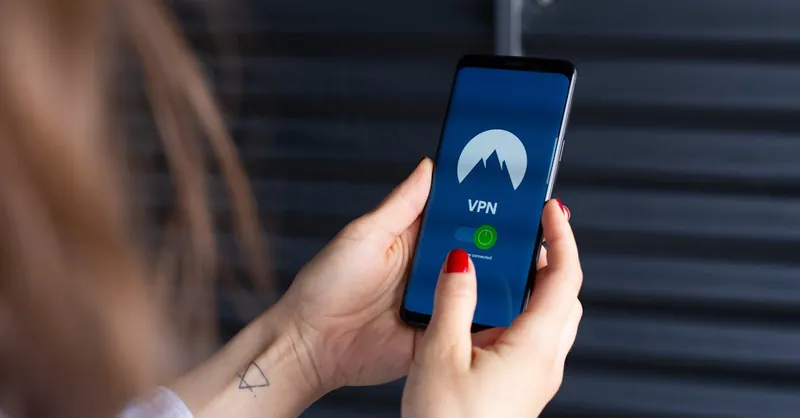
Image courtesy of Stefan Coders
Limitations of VPNs: What They Can’t Protect Against and Additional Security Measures to Take
While VPNs are powerful tools for enhancing online security and privacy, it’s essential to understand their limitations and recognize that they are not a catch-all solution. A VPN primarily encrypts your internet traffic and masks your IP address, but it cannot protect you from all cybersecurity threats or unsafe online behaviors. For example, VPNs do not prevent malware infections, phishing attacks, or data breaches caused by weak passwords or compromised websites. They also cannot stop tracking by websites that use cookies or browser fingerprinting techniques once you’re logged in or actively sharing personal information.
To maximize your online security, consider these additional measures alongside VPN use:
- Employ Strong, Unique Passwords and Use a Password Manager: This reduces the risk of account compromise even if a VPN is active.
- Use Antivirus and Anti-Malware Software: Protects your devices from viruses, ransomware, and other malicious software that a VPN cannot detect or block.
- Enable Multi-Factor Authentication (MFA): Adds an extra layer of account security by requiring multiple forms of verification.
- Be Vigilant Against Phishing Attempts: Avoid clicking on suspicious links or downloading attachments from unknown sources, which bypass VPN protections.
- Keep Software and Devices Updated: Regular updates patch security vulnerabilities that VPNs do not address.
- Practice Safe Browsing Habits: Avoid downloading software or visiting websites that are untrustworthy or potentially harmful.
By understanding the scope and limits of VPN protection, and layering it with these essential cybersecurity practices, you establish a comprehensive defense against a wider range of digital threats. Remember, a VPN is best viewed as a vital component in a multi-layered security strategy rather than a standalone shield—integrating additional safeguards ensures your privacy and online safety remain robust in an evolving threat landscape.
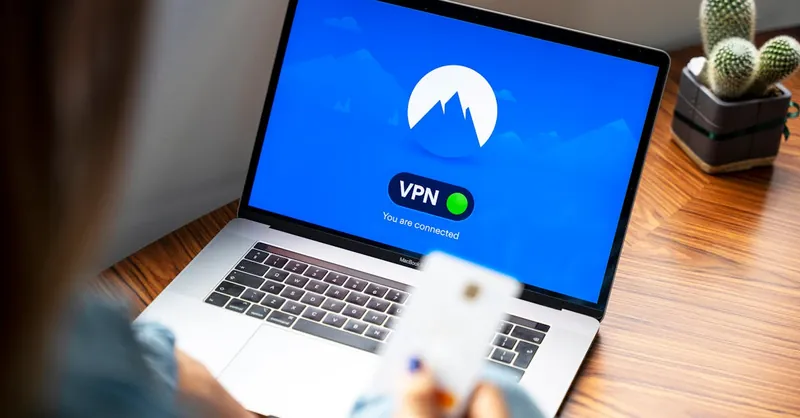
Image courtesy of Stefan Coders
VPNs and Legal Considerations: Understanding Policies and Compliance Issues
While VPNs are invaluable for enhancing online security and privacy, it’s critical to recognize the legal landscape surrounding their use, which varies significantly across jurisdictions. Some countries have embraced VPN technology as a legitimate privacy tool, while others impose restrictions or outright bans, especially where authoritarian regimes seek to control internet access or monitor citizens. Before using a VPN, always review the local laws and regulations to ensure that your VPN activities comply with regional policies and avoid potential legal repercussions.
Moreover, when choosing a VPN provider, pay close attention to their privacy policies and data handling practices. Reputable VPN services operate under strict no-logs policies and transparent terms, meaning they do not store or share your browsing history, IP addresses, or connection timestamps. This commitment is crucial for maintaining your anonymity and protecting you from invasive government surveillance or data requests. However, some VPNs may comply with legal inquiries or keep minimal user metadata, so verify whether the provider has undergone independent audits or is headquartered in privacy-friendly countries.
For businesses, compliance issues become more complex. Organizations must ensure their VPN usage aligns with industry standards such as GDPR, HIPAA, or PCI-DSS depending on the nature of the data handled. This includes maintaining secure VPN access control, encrypting sensitive transmissions, and ensuring audit trails meet regulatory requirements. Using a VPN that offers dedicated IP addresses, multi-factor authentication, and centralized management can help businesses uphold compliance while safeguarding sensitive client information.
In summary, understanding the legal context and compliance requirements for VPN use not only protects you from legal trouble but also reinforces your overall cybersecurity posture. Stay informed about evolving regulations and select VPN services with transparent policies and robust security features to maintain both privacy and adherence to legal frameworks.
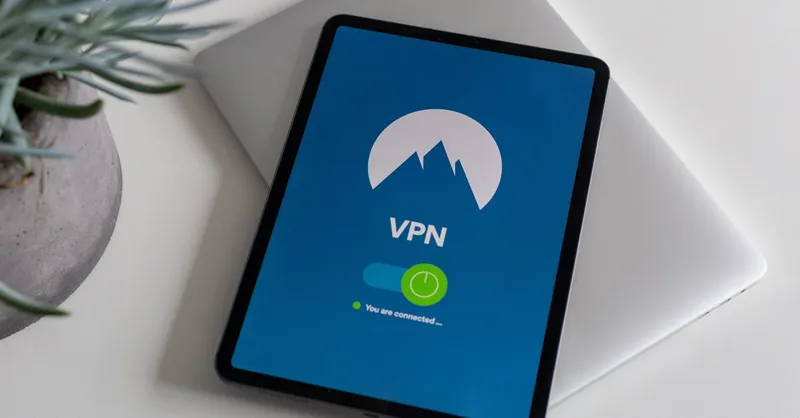
Image courtesy of Stefan Coders
Troubleshooting VPN Issues: Common Problems and How to Fix Them
Even the best VPN services can occasionally encounter issues that impact your online security and browsing experience. Understanding common VPN problems and their solutions helps you maintain a smooth, uninterrupted encrypted connection. Here are the most frequent VPN issues users face and practical steps to resolve them:
1. VPN Connection Won’t Establish
- Cause: Incorrect login credentials, server overload, firewall or antivirus blocking, or network restrictions.
- Fix: Double-check your username and password, try connecting to a different VPN server, temporarily disable firewall/antivirus software, or switch to a different network to rule out ISP or router restrictions. Restarting your device and VPN app can also resolve transient glitches.
2. Slow VPN Speeds and Lag
- Cause: Server congestion, long distance between you and the VPN server, or ISP throttling.
- Fix: Connect to a server geographically closer to your location, switch to faster VPN protocols like WireGuard, and close bandwidth-heavy applications running in the background. Running speed tests before and after switching servers can help identify optimal connections.
3. VPN Disconnects Unexpectedly
- Cause: Unstable internet connection, VPN client bugs, or network interruptions.
- Fix: Enable the kill switch feature to prevent data leaks during drops. Ensure your VPN app is up to date, and try reinstalling it if the problem persists. Also, verify your network stability or switch to a more reliable internet connection.
4. DNS or IP Leaks Despite VPN Use
- Cause: Misconfiguration, DNS leak vulnerabilities, or WebRTC leaks in browsers.
- Fix: Activate DNS leak protection and disable WebRTC in your browser settings or use browser extensions designed to block WebRTC leaks. Verify your connection for leaks regularly using trusted online leak tests.
5. VPN Not Working on Certain Websites or Services
- Cause: Websites blocking known VPN IP addresses or geo-restrictions enforcing advanced detection.
- Fix: Switch to different VPN servers or try specialized servers designed for streaming or bypassing censorship. Clearing browser cookies and cache or using incognito mode may also help.
6. Unable to Connect on Specific Devices
- Cause: Device compatibility issues or software conflicts.
- Fix: Confirm your VPN supports your device’s operating system and check the latest app version. Restart the device, update the OS, or manually configure VPN settings if needed.
By proactively troubleshooting these common VPN issues, you ensure your encrypted connection remains reliable, fast, and secure—preserving your online privacy without interruption. Regularly updating your VPN software and following provider-specific guidance also enhances performance and minimizes technical disruptions.
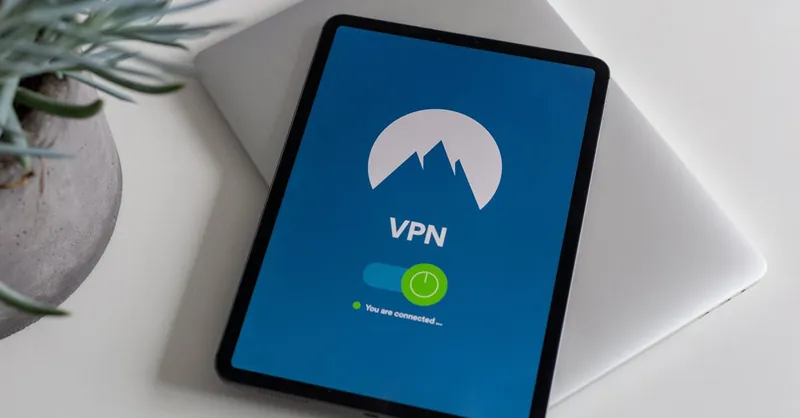
Image courtesy of Stefan Coders
Integrating VPNs into a Broader Online Security Strategy for Sustainable Cyber Protection
While VPNs provide a critical layer of encryption and online anonymity, their true power emerges when integrated into a comprehensive cybersecurity framework. Relying solely on a VPN may leave gaps exposed to sophisticated cyber threats targeting endpoints, applications, or user behavior. To achieve sustainable cyber protection, it’s essential to combine VPN use with other proactive security measures that address vulnerabilities beyond network traffic interception.
Key Components to Complement Your VPN for Holistic Security
- Robust Endpoint Security: Deploy antivirus, anti-malware, and firewall solutions on all devices accessing the internet through your VPN. This safeguards against threats like ransomware and spyware which a VPN cannot detect or block.
- Strong Authentication Methods: Implement multi-factor authentication (MFA) alongside VPN login credentials to prevent unauthorized access, especially for remote workers or business users.
- Regular Software and Firmware Updates: Keeping operating systems, applications, and VPN clients up to date ensures vulnerabilities are patched promptly, reducing exploitation risks.
- Secure Password Management: Use complex, unique passwords stored in trusted password managers. Even encrypted connections can be compromised if login credentials are weak or reused.
- User Education and Awareness: Continuously train users on identifying phishing attempts, safe browsing habits, and the importance of activating the VPN consistently, especially on unsecured networks.
- Data Backup and Incident Response Preparedness: In addition to prevention, maintain regular backups of critical data and have actionable plans to respond to incidents that bypass VPN protections.
By embedding your VPN into this layered defense strategy, you create multiple barriers against cyber attackers—encryption protects data-in-transit, while endpoint security, vigilant practices, and access controls fortify the entire digital ecosystem. This approach not only enhances the effectiveness of your VPN but also minimizes the likelihood of breaches, making your online protection resilient, adaptive, and sustainable in the face of evolving cyber threats.
Why Integration Matters for Long-Term Online Security
Cybersecurity is not a one-time setup but an ongoing process driven by evolving risks and technologies. VPNs excel at securing network connections but do not replace other essential safeguards. Without integration:
- Attackers can exploit vulnerabilities in software, social engineering, or device compromises.
- Regulatory compliance may falter if VPN use is not supported by comprehensive data protection policies.
- Security gaps can arise if users bypass VPNs or use weak authentication mechanisms.
Thus, integrating VPNs with complementary tools and best practices establishes a dynamic, holistic defense posture. This empowers individuals and organizations to maintain privacy, prevent data leakage, and mitigate risks effectively—turning your VPN investment into a foundational pillar of sustainable online security.
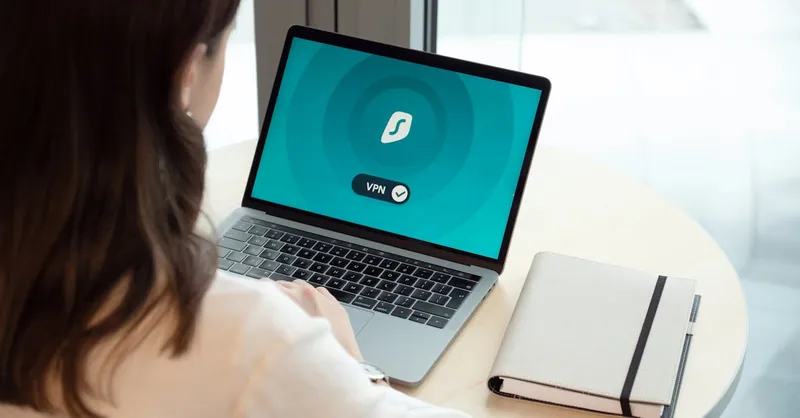
Image courtesy of Dan Nelson
